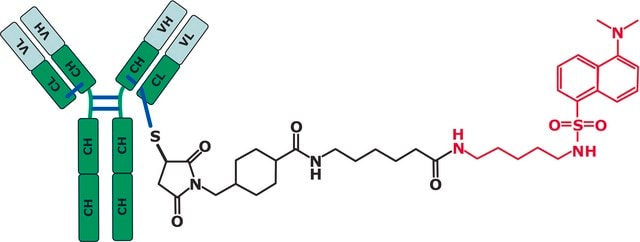MBD0027
Genomics standardization kit from Porphyromonas gingivalis
Suitable for PCR, sequencing and NGS
About This Item
Recommended Products
Quality Level
concentration
>10^8
technique(s)
DNA extraction: suitable
DNA sequencing: suitable
PCR: suitable
shipped in
dry ice
storage temp.
−20°C
General description
P. gingivalis, is a gram-negative anaerobe bacterium which is an etiologic agent of adult periodontitis, a chronic inflammatory disease characterized by the destruction of the supportive tissue surrounding teeth. P. gingivalis usually inhabits the oral cavity, being a member of the oral microbiome along with more than 500 other bacterial species.2 Studies have shown that LPS from P. gingivalis plays an important role in this disease. 3-6 The association of the oral microbiota, including P. gingivalis, with various pathological states has been reported. These include development of Alzheimer′s disease7, role in oral cancers8, preterm birth9 and rheumatoid arthritis.10 Studies show that in mice, oral administration of P. gingivalis induced a change in gut microbiota composition, which in turn affects the host′s metabolic profile. Accumulating evidence suggests a profound effect of altered gut metabolite profiles on overall host health.11
View all Microbiome inactivated bacteria and DNA standard for your Metagenomics Research needs.
Application
Features and Benefits
- Individual microbial standard for microbiomics and meta-genomics workflow
- Suitable standard for PCR, sequencing and NGS
- Improve Bioinformatics analyses
- Increases reproducibility
- Compare results lab to lab
Components
2. Inactivated Porphyromonas gingivalis: The inactivated bacteria are provided at >10^8 bacteria/vial as lyophilized powder. It is recommended to avoid freeze thaw cycles of this product.
3. Resuspension Buffer: The Resuspension Buffer is used to reconstitute the lyophilized inactivated bacteria prior to genomic DNA extraction
Preparation Note
1. Thaw the lyophilized cells at RT for 5 min.
2. Use 1 ml of the supplied Resuspension buffer to resuspend the lyophilized cells, pipette until all the cells are suspended.
3. Transfer the resuspended cells to a clean 1.5ml Eppendorf tube.
4. The resuspended bacteria can be used as control and/or spike-in for gDNA extraction from microbiome samples.
It is recommended to avoid long-term storage of the resuspended cells.
Storage Class Code
10 - Combustible liquids
Regulatory Listings
Regulatory Listings are mainly provided for chemical products. Only limited information can be provided here for non-chemical products. No entry means none of the components are listed. It is the user’s obligation to ensure the safe and legal use of the product.
PDSCL
Please refer to KIT Component information
PRTR
Please refer to KIT Component information
FSL
Please refer to KIT Component information
ISHL Indicated Name
Please refer to KIT Component information
ISHL Notified Names
Please refer to KIT Component information
Cartagena Act
Please refer to KIT Component information
JAN Code
キットコンポーネントの情報を参照してください
Certificates of Analysis (COA)
Search for Certificates of Analysis (COA) by entering the products Lot/Batch Number. Lot and Batch Numbers can be found on a product’s label following the words ‘Lot’ or ‘Batch’.
Already Own This Product?
Find documentation for the products that you have recently purchased in the Document Library.
Articles
DNA standards enhance metagenomics research integrity, offering precise species study and mixed community standards.
Our team of scientists has experience in all areas of research including Life Science, Material Science, Chemical Synthesis, Chromatography, Analytical and many others.
Contact Technical Service








